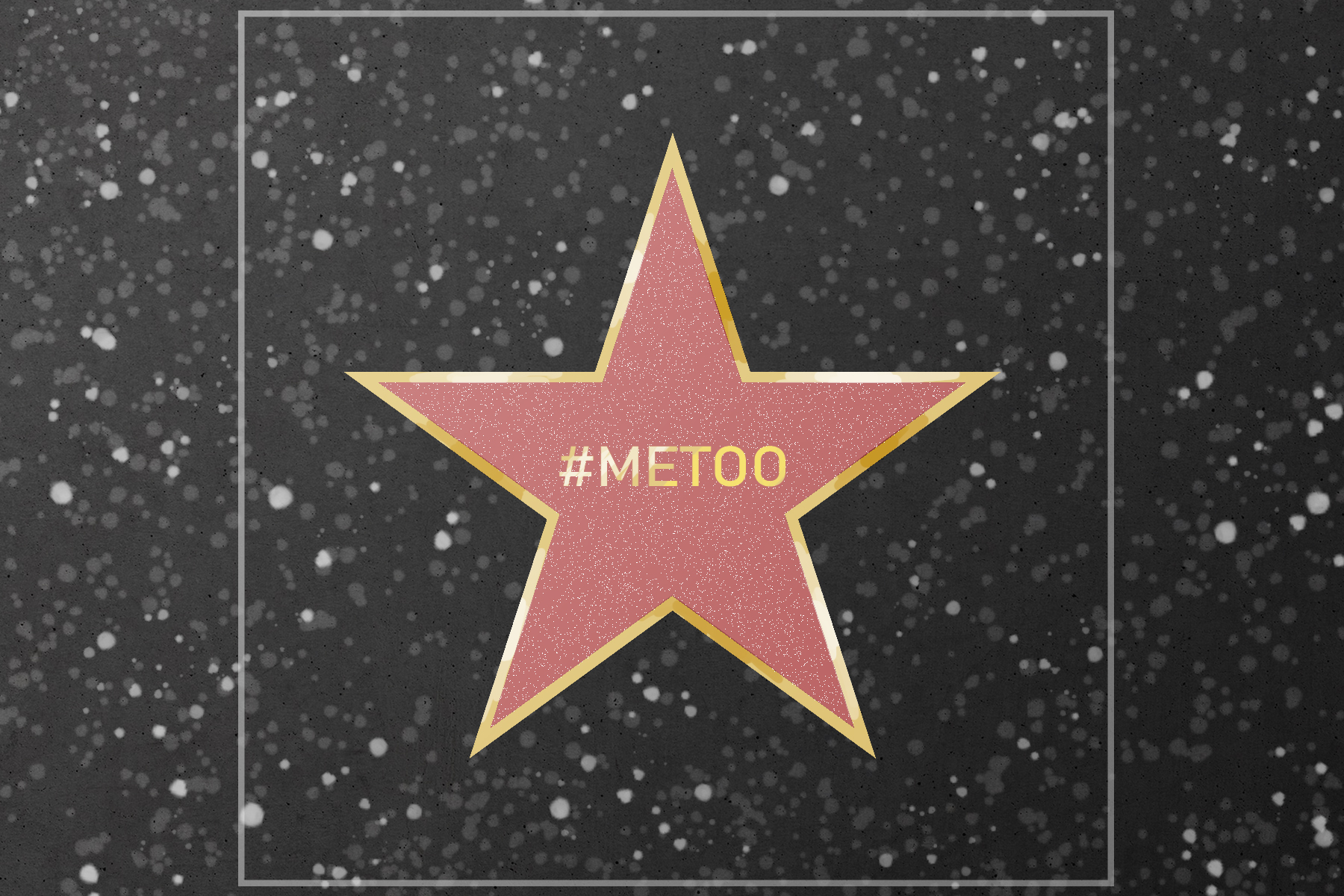October marks the one-year anniversary since the #MeToo movement flooded social media and brought awareness and action toward the high volume of sexual misconduct running rampant throughout Hollywood and elsewhere. It was only a matter of days after The New York Times and The New Yorker released their stories exposing silver-screen mogul Harvey Weinstein’s rampant history of harassment, rape and pay-offs that the trajectory of the movement took off. In no time, women and men everywhere were inspired to share their stories.
Looking back over the year, the power of #MeToo has left a lasting mark on the world and a significant dent in what was once perceived as the picturesque Hollywood scene. The truth is out. Abusers are known. Now, one year later, where does the world stand?
One thing is for certain, the movement does not seem to be in any way slowing down. According to the Pew Research Center, the #MeToo hashtag has been used approximately 19 million times over the past year. The infamous hashtag continues to spike during certain news events, and over the span of the year, there have been many that have brought the relevancy of #MeToo into question.
On Oct. 15 of last year, actress Alyssa Milano sent out the now historic tweet asking victims of sexual assault to reply to her post with the phrase “me too,” — originally penned by activist Tarana Burke. The hashtag quickly caught on, growing rapidly in its use and surging to 800,000 when Weinstein resigned from the board of his entertainment company only two days later. The hashtag jumped to over 200,000 uses after Time Magazine named the #MeToo activists as the persons of the year; just slightly under that during the 75th Golden Globe Awards; around 400,000 on the day after International Women’s Day; over 800,000 when Leslie Moonves resigned from CBS; and over 200,000 during the Kavanaugh and Ford testimony, as reported by Pew.
The endurance of the #MeToo movement and the pure drive of those working tirelessly to continue to propel victims’ voices is something monumental in the scope of history. Never before has sexual assault, and particularly its presence in the workplace, been brought into the public eye and stayed there.
Many hoped for it during Anita Hill’s historic 1991 testimony against then-Supreme Court nominee Clarence Thomas, who she claimed had sexually harassed her while she worked at the Education Department and Equal Employment Opportunity Commission. Despite Hill’s sincere testimony, recounting how Thomas had expressed his sexual interest in her and asked her out on numerous dates, the Senate confirmed him 52-48.
While closely followed and remarkable at the time, Hill’s case never garnered the traction it needed to motivate a large-scale movement. In an interview conducted by “Last Week Tonight” host John Oliver shortly after the Moonves allegations hit headlines, Hill said, “There has been a tremendous amount of change in public attitude and there has been a change in the information we have about sexual harassment. Even a few years ago, people were ambivalent about what the consequences should be concerning behaving incredibly badly in the workplace.” She added, “I’m feeling more optimistic than I was 27 years ago. If we do nothing, then change is not going to come.”
Thankfully, change has come in the way that it never got the chance to in 1991. In addition to the number of abusers being uncovered, the nation’s laws and policies are being modified as well. Certain state laws surrounding nondisclosure agreements have made it illegal for companies to use the agreements at the time of hiring and/or for companies to use NDAs to stop victims from coming forward. Washington Senator Karen Keiser — who helped implement a set of bills aimed at NDAs that cover sexual abuse and harassment — said, “Obviously the #MeToo movement has had a huge impact on our conversations and that’s been terrific, but I’ve been concerned that many movements that are dialogues and open conversations don’t necessarily produce real change, so I wanted to make sure we were seizing the moment.”
Laws centered on the statute of limitations and consent have changed as well. According to Pew Research, at least eight states are considering bills that would give sexual assault victims more time to file a civil suit or for district attorneys to prosecute. Other states have proposed bills concerning what qualifies as consent and the problematic law that requires evidence of force and/or resistance during an assault. Because victims often go into shock during traumatic incidents, a revised law would work to get rid of harmful victim-blaming culture. Poor rape kit laws are getting the attention they need as well, with new laws urging states to test their backlog of kits and ensure that they are being tested efficiently. Rape kits often go untested for decades. In New York City alone, there are at least 17,000.
Of course, the velocity #MeToo has managed to gather since its inception has led most notably to the denouncement of several high-bar men in the industry. With the foundation and support of the movement under their feet, women (and men) everywhere have come forward and made their abusers known.
The domino effect of accusations was spearheaded by the revelatory allegations against Weinstein, in which over 80 women had accused him of sexual misconduct by Oct. 31 of last year. As a result, hundreds of men have been outed as sexual predators, some even getting the lawful punishment they deserve, like U.S. Olympic Team doctor Larry Nassar. Nassar’s case served to push the crushing reality of sexual molestation into the public eye, him having abused at least 265 girls by the time of his sentencing. Others accused include world famous comedian Louis C.K., chairman and CEO of CBS Leslie Moonves, celebrity chef Mario Batali, “Today” anchor Matt Lauer, journalist Charlie Rose and actors Kevin Spacey, James Franco and Dustin Hoffman.
Nassar, thankfully, will rot in jail. However, it is an unfortunate, undeniable truth that a good portion of those accused will face no criminal charges or permanent setbacks, and will simply go on with their careers. For instance, Louis C.K., who even admitted to the gross sexual acts he’s been accused of, is already back to doing stand-up, opening a recent set with the words, “It’s been a weird year.” Leslie Moonves might still get $120 million in severance pay from CBS because the accusations against him do not “constitute cause.” James Franco won another Golden Globe this past year and currently stars in the HBO drama “The Deuce,” despite multiple allegations against him. Kevin Spacey, among others, will face no sex-crime charges for allegedly sexually assaulting multiple men, many of whom were minors at the time.
While this may seem disheartening, it’s important to note that since #MeToo began, the culture surrounding sexual harassment, rape, consent and workplace policy has significantly been altered for the better. Unlike in Anita Hill’s time, the deeply rooted issues so obviously ingrained in workplace culture (and elsewhere) have finally been brought to attention; they are unable to be ignored.
While the world is far from perfect, there is at least a conversation demanding to be had and people fighting tirelessly to be heard. In only one year, a simple phrase has single-handedly changed the future of what it means to be a survivor of trauma. For the first time in a long time, there is actual validity being attributed to the voices so used to being overlooked and tossed aside. There is so much that’s been done, but there is still much left to do. If you’re ready to be strong and tackle what’s to come, well, #MeToo.

















